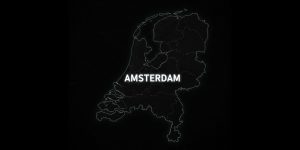The Deception of NGOs: Political Tools Masquerading as Humanitarian Organizations

Non-Governmental Organizations (NGOs) are often perceived as benevolent entities that operate independently to promote humanitarian causes, environmental protection, and social justice. However, a closer look at their structures, funding sources, and activities reveals that many NGOs are far from neutral. Instead, they function as political instruments, advancing agendas that often do not align with the interests of the general public but rather serve powerful states, corporations, and ideological movements.
What Are NGOs?
NGOs are organizations that claim to be independent of governments and profit-driven businesses, operating primarily on donations, grants, and public funding. They exist in various fields, including human rights, environmental activism, public health, and development aid (World Bank, 2021). However, the notion that these organizations are truly independent is misleading. Many receive substantial funding from government agencies, multinational corporations, and elite philanthropic foundations, creating conflicts of interest that shape their priorities and actions (Chomsky, 1999).
The Political Nature of NGOs
Government-Funded “Non-Governmental” Organizations
Despite their name, many NGOs are heavily financed by governments, raising questions about their so-called independence. The U.S. government, through agencies like the National Endowment for Democracy (NED) and USAID, has funneled millions into NGOs worldwide to promote Western political interests under the guise of democracy-building (Scahill, 2013). Similarly, the European Union allocates billions to NGOs that align with its policies, particularly on immigration, climate policy, and social governance (European Commission, 2022). This funding structure allows governments to influence political developments in other countries while maintaining plausible deniability.
NGOs as Instruments of Foreign Influence
Many NGOs operate as tools of soft power, furthering the geopolitical ambitions of their financiers. For instance, so-called human rights organizations have played key roles in supporting regime change operations in the Middle East and Eastern Europe, amplifying narratives that justify foreign intervention (Petras, 2007). During the Arab Spring, NGOs backed by Western governments provided logistical and financial support to opposition groups, effectively steering the course of revolutions in favor of external interests (Curtis, 2018).
Environmental NGOs and Economic Warfare
Environmental NGOs such as Greenpeace and the World Wildlife Fund (WWF) claim to work for the planet, yet their actions often align with corporate and geopolitical strategies. Large donors, including multinational energy firms and banking institutions, support these organizations, which raises concerns about their true motivations (Malm, 2020). For example, environmental NGOs frequently campaign against traditional energy sources like coal and oil while promoting “green” energy solutions that benefit major financial players invested in renewables (Shellenberger, 2021).
The Hidden Financial Interests Behind NGOs
Elite Philanthropy and Corporate Influence
Many prominent NGOs receive funding from elite foundations such as the Open Society Foundations (founded by George Soros), the Bill & Melinda Gates Foundation, and the Rockefeller Foundation. These entities do not fund NGOs out of pure altruism but rather to shape policy in ways that serve their interests (Engdahl, 2016). For example, the Gates Foundation has invested heavily in public health NGOs that push vaccination campaigns and pharmaceutical solutions favorable to the industry (Payer, 1982).
NGOs and Mass Migration
A striking example of NGO influence is in immigration policy. NGOs operating in the Mediterranean, such as Open Arms and SOS Méditerranée, actively facilitate the transport of migrants from Africa to Europe under the pretext of humanitarian rescue operations. However, investigative reports have shown that these organizations work in coordination with human traffickers, essentially running a migration pipeline that burdens European taxpayers and destabilizes local communities (Murray, 2017).
The Lack of Accountability and Democratic Oversight
Despite their influence over public policy and international relations, NGOs operate with little transparency or accountability. Unlike elected officials, NGO leaders are not answerable to the public, yet they exert significant power over decision-making in critical areas such as climate policy, public health, and human rights law (Anderson, 2015). This undemocratic structure allows them to push agendas that may be at odds with the interests of the populations they claim to serve.
Conclusion
The widespread perception of NGOs as neutral and altruistic entities is misleading. In reality, many function as political tools, advancing the interests of governments, multinational corporations, and elite foundations. Whether through shaping public opinion, lobbying policymakers, or facilitating mass migration, NGOs wield significant influence without the democratic legitimacy that should accompany such power. Understanding the political and financial structures behind these organizations is crucial for recognizing their true role in global affairs.
References
- Anderson, K. (2015). NGOs and Global Policy: The Hidden Power Structures.
- Chomsky, N. (1999). Profit Over People: Neoliberalism and Global Order.
- Curtis, M. (2018). Secret Affairs: Britain’s Collusion with Radical Islam.
- Engdahl, W. (2016). The Lost Hegemon: How the CIA and Deep State Took Over America.
- European Commission (2022). “EU Funding of NGOs and Policy Influence.”
- Malm, A. (2020). Fossil Capital: The Rise of Steam Power and the Roots of Global Warming.
- Murray, D. (2017). The Strange Death of Europe: Immigration, Identity, Islam.
- Payer, L. (1982). Disease-Mongers: How Doctors, Drug Companies, and Insurers Are Making You Feel Sick.
- Petras, J. (2007). NGOs: In the Service of Imperialism.
- Scahill, J. (2013). Dirty Wars: The World is a Battlefield.
- Shellenberger, M. (2021). Apocalypse Never: Why Environmental Alarmism Hurts Us All.
- World Bank (2021). “Understanding the Role of NGOs in Global Development.”


















